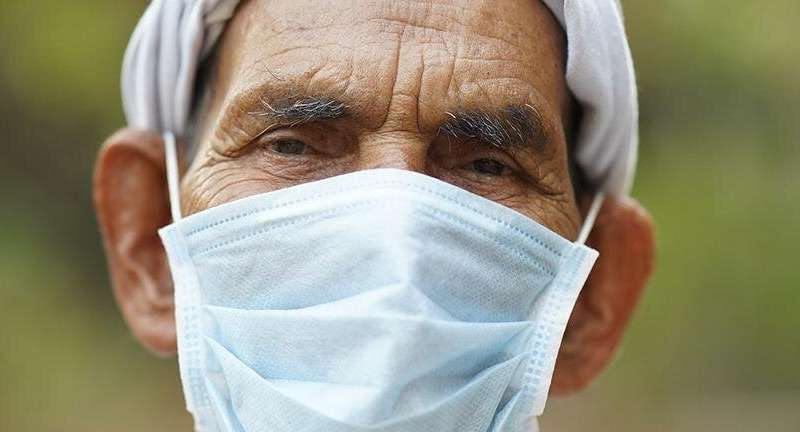Ageing heart cells offer clues to susceptibility of older people to severe COVID-19

Genes that play an important role in allowing SARS-CoV-2 to invade heart cells become more active with age, according to research published today in the Journal of Molecular and Cellular Cardiology. The findings could help explain why age is major risk factor for dying from COVID-19, with people over 70 years at greatest risk, and why the disease can cause heart complications in severe cases, including heart failure and inflammation of the heart.
“When this novel coronavirus first emerged, we expected it to be primarily a respiratory illness, as the virus usually takes hold first in the lungs,” said Professor Anthony Davenport from the Department of Medicine. “But as the pandemic has progressed, we’ve seen more and more COVID-19 patients—particularly older patients—affected by heart problems. This suggests that the virus is capable of invading and damaging heart cells and that something changes as we age to make this possible.”
Professor Davenport led an international team of researchers from the University of Cambridge, Maastricht University, KU Leuven and Karolinska Institute to investigate the link between COVID-19 and heart failure. The researchers examined cells known as cardiomyocytes to see how susceptible they were to infection by the coronavirus. Cardiomyocytes make up the heart muscle and are able to contract and relax, enabling the heart to pump blood around the body. Damage to these cells can affect the ability of the heart muscles to perform, leading to heart failure
To cause damage, the virus must first enter the cell. SARS-CoV-2 is a coronavirus—spherical in shape with ‘spike’ proteins on its surface, which it uses to gain entry. The spike protein binds to ACE2, a protein receptor found on the surface of certain cells. The virus is also able to hijack other proteins and enzymes, including TMPRSS2 and Cathepsins B and L to gain entry.
The researchers compared cardiomyocytes from five young (19-25 year old) males and five older (63-78 year old) males and found that the genes that give the body instructions to make these proteins were all significantly more active in cardiomyocytes from the older males. This suggests that there is likely to be an increase in the corresponding proteins in aged cardiomyocytes.
“As we age, the cells of our heart muscles produce more of the proteins needed by the coronavirus to break into our cells,” said Dr. Emma Robinson from Maastricht University and KU Leuven. “This makes these cells more vulnerable to damage by the virus and could be one reason why age is a major risk factor in patients infected with SARS-CoV-2.”
Some of the proteins encoded by the genes can be inhibited by existing medicines. For example, the anti-inflammatory drug camostat inhibits TMPRSS2 and has been shown to block SARS-CoV-2 entry in cells grown in the laboratory. The study also suggests new targets for medicines that could be developed such as compounds blocking binding of the virus to ACE2 that may be beneficial in protecting the heart.
Source: Read Full Article



